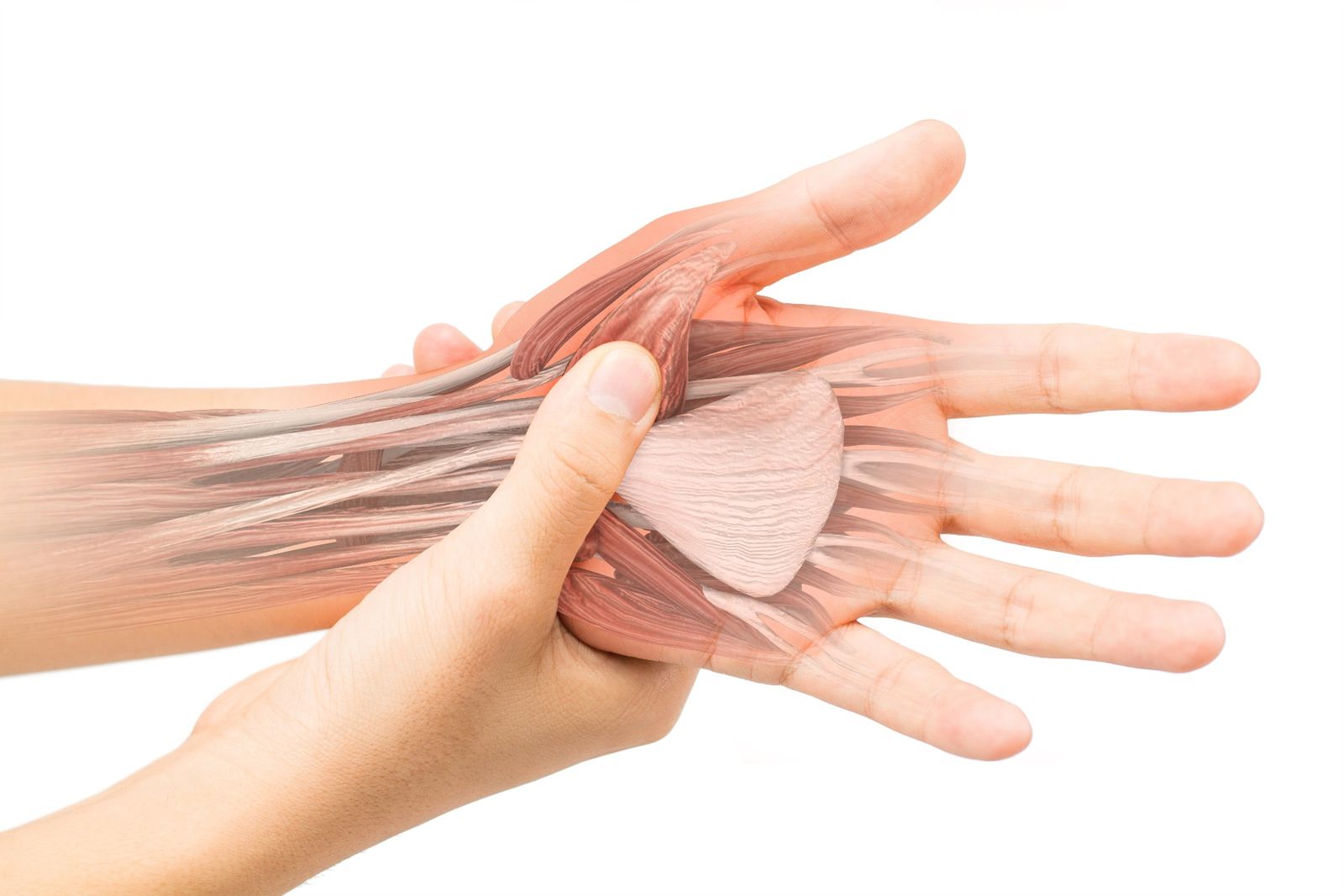
Are you experiencing a tendon injury?
Dr. Daniel Durand, a board-certified surgeon in Montreal, can help.
Our hands and forearms are crucial in almost every daily task, from gripping objects to typing on a keyboard. Tendon damage in these areas can significantly impact functionality, often leading to pain, weakness, and reduced range of movement. Dr. Daniel Durand specializes in diagnosing and treating tendon injuries in the hand and forearm, helping patients return to their normal activities with personalized care plans.
What Are Tendons and How Do They Get Injured?
Tendons are strong, flexible bands of tissue that connect muscles to bones, enabling us to move our hands and fingers precisely. The hand and forearm contain many tendons that make these movements possible. However, these tendons can be injured as a result of sudden trauma, repetitive strain or an underlying health problem. The most common injuries are:
- Tendon Lacerations: Caused by cuts or sharp objects, these injuries can result in loss of movement or sensation and require prompt medical attention.
- Tendonitis: Often due to repetitive movements or overuse, tendonitis causes inflammation, pain, and swelling in the affected area. It’s frequently seen in people who engage in typing, sports, or heavy-lifting activities.
- Tendon Ruptures: When tendons experience extreme stress, they can partially or entirely rupture, leading to immediate pain and difficulty in hand or wrist movement.
Recognizing the Symptoms of a Tendon Injury
Symptoms vary depending on the type and severity of the injury but generally include pain, swelling, and stiffness. Lacerations may cause visible cuts, while tendon ruptures can result in a complete inability to move the affected fingers or wrist. Tendonitis often begins with mild discomfort that gradually intensifies with activity.
Treatment Options for Tendon Injuries
Dr. Durand reccomends several effective treatments to help patients recover from tendon injuries:
- Non-Surgical Treatments: Rest, splinting, and anti-inflammatory medications are often the first steps, particularly for tendonitis or mild injuries. Physical therapy can also improve flexibility, strength, and range of motion.
- Steroid Injections: For ongoing pain, a corticosteroid injection can reduce inflammation and relieve symptoms, allowing patients to continue with daily tasks.
- Surgery: Surgery may be necessary to repair or reconstruct the tendon for severe cases, such as lacerations or ruptures. Dr. Durand specializes in precise surgical techniques to restore hand functionality and minimize scarring.
Getting Back to Normal
Tendon injuries can feel limiting, but recovery is within reach with timely treatment and Dr. Durand’s expertise.
Get treatment in a private hand surgery clinic by the US and Canada board-certified Hand Surgeon Dr. Daniel Durand!
We treat patients from the Toronto GTA area, Ottawa, Kingston, Oshawa, Cornwall, Montreal in Ontario, and Quebec provinces, as well as all over Canada.
Rapid appointments, unhurried consultations and excellent care. Get back the quality of life you deserve, pain-free. Schedule a consultation, even if you are out of the province patient, we will call you back to assess your concerns!
